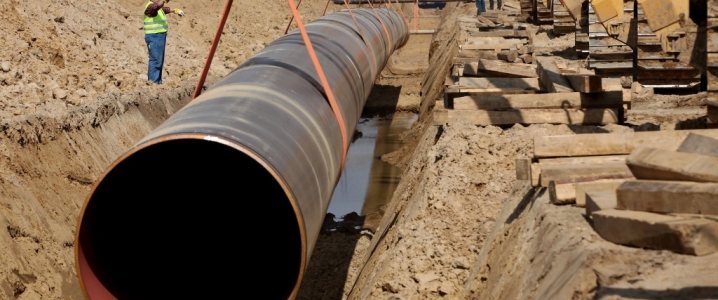Goldman Lost $100M On Marcellus Natural Gas Bet

Goldman Sachs lost more than US$100 million on a bet that Marcellus gas prices in the Marcellus shale would rise as takeaway pipeline capacity increased, The Wall Street Journal reports, citing people familiar with the trade.
In the second quarter, Goldman Sachs reported net revenues in the Fixed Income, Currency and Commodities Client Execution division plunging by 40 percent on the year to US$1.16 billion, “due to significantly lower net revenues in interest rate products, commodities, credit products and currencies, partially offset by higher net revenues in mortgages.”
According to The Journal’s sources familiar with Goldman’s wrong-way bet, the investment bank bet on the timely completion of pipelines designed to carry gas out of the Marcellus shale in Ohio and Pennsylvania. Goldman had placed bets that the natural gas prices in the Marcellus would rise relative to the Henry Hub national benchmark.
However, the US$4.2-billion Rover natural gas pipeline currently under construction started facing possible delays and mounting environmental scrutiny in the second quarter of 2017.
Rover, developed by Energy Transfer Partners, faces hurdles along its construction path, as several states have ordered additional environmental scrutiny, while some have ordered works be stopped in certain areas.
This has caused the Marcellus natural gas prices to drop—against Goldman’s bet for a rise—with the Marcellus shale prices quadrupled their discount to Henry Hub prices in the second quarter.
Last month, West Virginia environmental regulators ordered the Rover project to cease and desist some land development activities in the state over violations of state environmental regulations, until it fully complies with all rules.
Ohio has asked for higher penalties over the spill of drilling mud into a wetland in Stark County in April. Ohio and Michigan residents are asking the Army Corps of Engineers to revoke a permit for the pipeline.
The U.S. Federal Energy Regulatory Commission (FERC) said in a notice last month that “Staff has preliminarily determined that, between February 2015 and September 2016, Rover did not fully and forthrightly disclose all relevant information to the Commission.”
Related News
Related News

- Keystone Oil Pipeline Resumes Operations After Temporary Shutdown
- Biden Administration Buys Oil for Emergency Reserve Above Target Price
- Freeport LNG Plant Runs Near Zero Consumption for Fifth Day
- Enbridge to Invest $500 Million in Pipeline Assets, Including Expansion of 850-Mile Gray Oak Pipeline
- Williams Delays Louisiana Pipeline Project Amid Dispute with Competitor Energy Transfer
- Evacuation Technologies to Reduce Methane Releases During Pigging
- Editor’s Notebook: Nord Stream’s $20 Billion Question
- Enbridge Receives Approval to Begin Service on Louisiana Venice Gas Pipeline Project
- Mexico Seizes Air Liquide's Hydrogen Plant at Pemex Refinery
- Russian LNG Unfazed By U.S. Sanctions




Comments